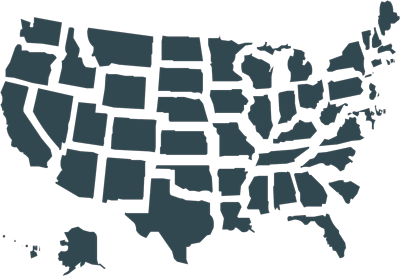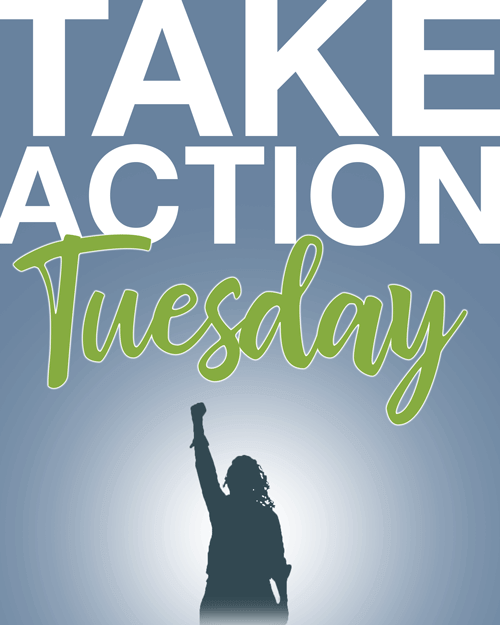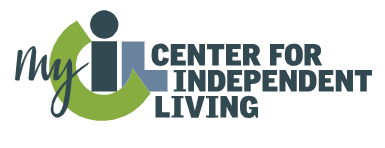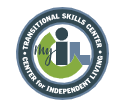Take Action Tuesday posts feature ways you can help improve the lives of people with disabilities — in your community and around the world.
From signing your name to a petition to emailing your local representative to share your stance on proposed legislature, many of these acts don’t take long but can make a real difference.
Discover what you can do on the national and state levels to improve the lives of people with disabilities.

Make a Difference Across the United States
Sign the Petition: Help Stop Any Funding Cuts or Caps to Medicaid
Join Easterseals as they work to prevent any funding cuts or caps to Medicaid. Submit the Easterseals form to add your name to the petition.
By submitting the form, you’re telling Congress that health services are crucial to people with disabilities and their loved ones. You’re joining the fight to stop Medicaid cuts and caps that prevent people with disabilities from getting the Home and Community Based Services they need to live their best, independent lives.
Participate in the Survey: For Seniors With Disabilities
If you’re a senior with a disability, The Americans with Disabilities Act (ADA) National Network wants to hear from you.
The ADA National Network is trying to learn how people like you get your information about services you can receive and your rights under the Americans with Disabilities Act — and how you use that information.
Take the survey and help the ADA National Network improve their future outreach initiatives to better support seniors with understanding their rights and available services.
Contact Your Members of Congress: Urge Them to Extend the Money Follows Person Program
The short-term funding extension for the Money Follows Person program — called the Medicaid Extenders Act 2019 — became law on Jan. 25, 2019. The bill included three months of funding. States have until September of 2019 to use this funding. It also extended the spousal impoverishment protections.
This protection allows one spouse to keep a share of their joint income and assets while the other spouse is in nursing care or receives Home and Community Based Services. Without this protection, the spouse not receiving services could face financial hardship. That’s because their joint income and assets would be used first to fund the care their spouse is receiving. Then, they’re left with not enough to cover their own living expenses.
Now, thanks to this new law, the protection is in place — but only until March 31, 2019. Contact your members of Congress today to urge them to extend the Money Follows the Person Program. Learn more about the Money Follows the Person Program.
Sign the Petition: Urge the Senate to Support the Convention on the Rights of Persons with Disabilities
The Convention on the Rights of Persons with Disabilities (CRPD) is an international treaty based on The Americans with Disabilities Act (ADA). It promotes the rights and protections of people with disabilities around the world.
There are 173 ratifications around the globe for this convention. Unfortunately, the United States has failed to ratify it by five votes. Since the failed voting, it has not come to a floor vote.
Submit the form to sign your name to the petition. The petition will be delivered in person to the offices of Senators in Washington, D.C.
Share Your Story: Help Prevent Medicaid Cuts by Submitting Your Story Online About Why Receiving Home and Community Based Services Is Important
The Arc is gathering stories from people like you about why Home and Community Based Services are important. They’re using these stories to advocate for continued funding of the Medicaid program.
Fill out the form and submit your story online to join the effort to protect Medicaid and Home and Community Based Services.
RSVP to Traumatic Brain Injury (TBI) Stakeholder Day: Join the Administration for Community Living (ACL) on Capitol Hill on March 12, 2019
On March 12, 2019, you can join the ACL, survivors of traumatic brain injuries and their loved ones on Capitol Hill to hear about and discuss key issues of traumatic brain injury.
During the event those impacted by a TBI will gather with support networks, state and federal representatives, and other stakeholders. Learn more and RSVP today!
Make a Difference in Your State

Colorado
Share Your Story: Help Family Voices Colorado Inform the Public on What It’s Like to Navigate the Health Care System for a Child With Special Needs
Do you have a child with special needs? Family Voices Colorado would like to hear your story about what it’s like for your family to navigate the often complex health care system.
You can call, email or share your story on their Facebook page. Learn more about how you can help Family Voices Colorado spread the word on what it’s like caring for a child with special needs.

Illinois
Submit a Form: Help Create a Sustainable Intellectual and Developmental Disabilities (ID/DD) Support System for Illinois by Using the Form to Email Your Legislators
Reach out to your Illinois legislators asking them to increase the funding for a sustainable ID/DD support system. This funding would improve the quality of services provided as well as decrease the number of people on the waiting list to receive the services.
Use this form to send a pre-written message to Illinois legislators that tell them you support increased funding for a sustainable ID/DD support system.

Oklahoma
Contact Your Legislators: Ask Legislators to Fund Home and Community Based Services
Oklahoma needs to continue funding the Home and Community Based Services people are receiving. Moreover, funding should cover those on a waiting list. In 2018, the number waiting to receive community-based services has grown to over 7,600.
Find your legislators’ contact info and reach out urging them to fund these critical services.

Pennsylvania
Sign the Petition: Add Your Name to Show Your Support of Funding for Pennsylvanians With Autism and Intellectual Disabilities
There is a shortage of direct support professionals. This shortage is leading to a long waiting list for people with autism or intellectual disabilities who want services that will help them live and work in their communities.
Use the form with its prepopulated message to reach out to the Governor and PA General Assembly. You’ll be urging them to make autism and intellectual disability a top priority in the budget.

Virginia
Submit Your Application for Partners in Policymaking: Join the 2019-2020 Class to Get the Advocacy Training You Need to Make a Difference in Your Community
Virginia Board for People with Disabilities is accepting applications for their Partners in Policymaking 2019-2020 class. The program — seven two-day sessions starting in September and running through April of 2020 — is for people with developmental disabilities and parents of young children with developmental disabilities.
During the program, you’ll gain valuable skills, develop resources and complete advocacy training that will help change your life — and the lives of people in your community. Submit your application by March 15, 2019.

Washington State
Mark Your Calendar: Join The Arc of Washington State for Their Advocacy Day on Wednesday, Feb. 27 at the Capitol
Meet The Arc at 10 a.m. at the United Churches (across from the Capitol) for an hour and a half briefing on current issues. You’ll end with an afternoon of advocating.
The theme for Feb. 27 Advocacy Day is “Incredible Home Life” and focuses on the difficulty people with disabilities face when looking for affordable and accessible housing. Learn more about Advocacy Days.





